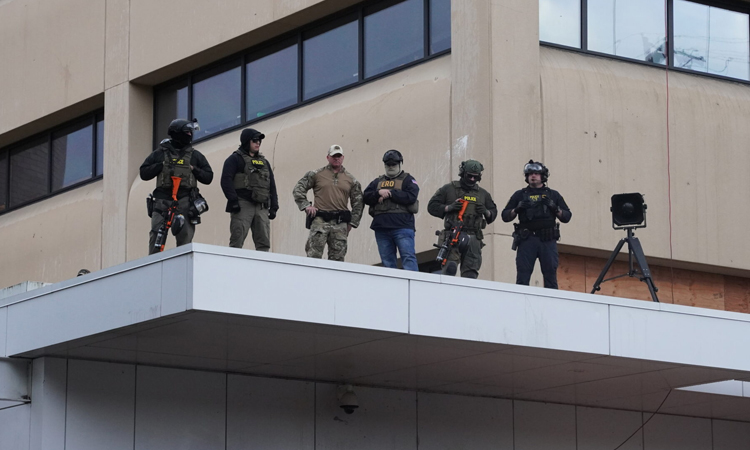News Flash
News Flash

WASHINGTON, Nov 8, 2025 (BSS/AFP) - A US federal judge ruled Friday that Donald Trump's National Guard deployment to Portland, Oregon is "unlawful" and ordered it permanently blocked, a legal setback for the president's use of troops in the country's cities.
The Republican president has sent the National Guard to three Democratic-led cities this year -- Los Angeles, the capital Washington and Memphis -- but his efforts to deploy soldiers in Portland and Chicago have been tied up in the courts.
Trump has repeatedly called the Oregon city "war-ravaged" and riddled with violent crime to justify sending forces there.
But District Judge Karin Immergut -- a Trump nominee -- rejected the administration's claim that protests against an ongoing immigration crackdown amounted to a rebellion justifying the deployment of National Guard troops to Oregon.
"The President's unlawful federalization of the National Guard violates the Tenth Amendment, which 'reserves to the States' any powers not expressly delegated to the federal government in the Constitution," Immergut wrote.
"With respect to the deployment of any state's National Guard to Oregon," she concluded, "THIS PERMANENT INJUNCTION ORDER IS IN FULL FORCE AND EFFECT."
The ruling supersedes Immergut's interim order that had temporarily blocked the deployment to Portland.
Authorities in California, which had strenuously opposed federalization of its National Guard forces to send to Oregon, hailed the decision as "a win for the rule of law, for the constitutional values that govern our democracy, and for the American people."
California Attorney General Rob Bonta added in a statement: "Once again, a court has firmly rejected the President's militarized vision for America's future."
Protests sparked by a spike in immigration raids have caused unrest in parts of the country, as Trump has pushed for a massive wave of deportations -- a hallmark of his 2024 presidential campaign.
But Immergut wrote there was no evidence of any large-scale violence, major damage to property, or actions by protesters that impeded Immigration and Customs Enforcement (ICE) agents from performing their duties, and that conditions on the ground did not justify the use of emergency powers.
The Trump administration could appeal Friday's ruling, with the possibility that the case ultimately goes before the US Supreme Court.